Related Research Articles

Richard Harman Jeffares Reeves was a New Zealand politician of the Liberal Party. He was acting Speaker of the Legislative Council in 1905.

Selwyn is a current electorate in the New Zealand House of Representatives, composed of towns on the outskirts of Christchurch city. The electorate was first formed for the 1866 election and has been abolished three times during its history. It was last re-established for the 2008 election and has been held by Nicola Grigg for the National Party since the 2020 election.
Christchurch North is a former New Zealand parliamentary electorate. The electorate comprised the northern half of what is now considered the Christchurch Central City.
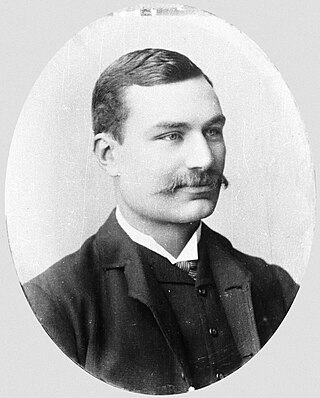
Arthur Edgar Gravenor Rhodes was a New Zealand Member of Parliament and Mayor of Christchurch.
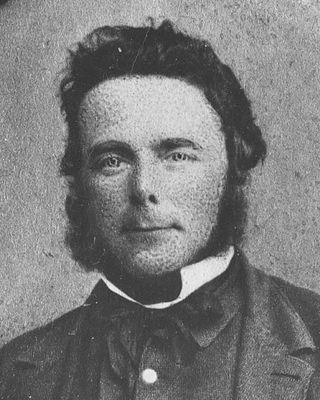
Alfred Saunders was a 19th-century New Zealand politician.
Moeraki was a parliamentary electorate in the Otago region of New Zealand, from 1881 to 1887.
Geraldine was a former parliamentary electorate in the South Canterbury region of New Zealand that existed three times from 1875 to 1911. It was represented by six Members of Parliament.
Wakanui was a rural parliamentary electorate in the south Canterbury region of New Zealand, from 1881 to 1887.
Coleridge is a former parliamentary electorate in the Canterbury region of New Zealand. The electorate existed from the 1866 election to 1887.
Heathcote was a 19th-century parliamentary electorate in Christchurch, New Zealand.
Hokonui was a parliamentary electorate in the Southland region of New Zealand, from 1881 to 1890.
Christchurch South was a parliamentary electorate in the city of Christchurch, New Zealand from 1881 to 1890 and then from 1905 to 1946.
Waimea was a parliamentary electorate in the Nelson Province of New Zealand, from 1853 to 1887. Initially represented by two members, it was a single-member electorate from 1861.
Oamaru was a parliamentary electorate in the Otago region of New Zealand, during three periods between 1866 and 1978.
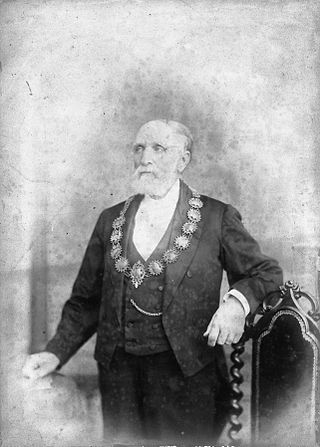
James Gapes was a local politician in Christchurch, New Zealand. He was Mayor of Christchurch on two occasions, and the father of a later mayor, Thomas Gapes. He was the first mayor who was elected by the voting public; previously city councillors chose one from their rank as mayor.
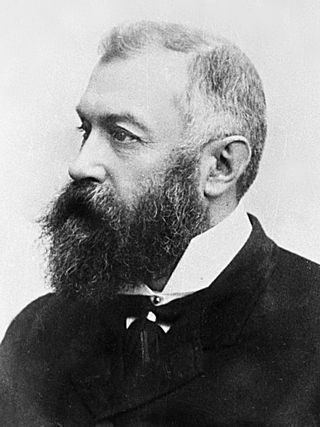
Edward Wingfield Humphreys was a New Zealand member of parliament representing Christchurch North from 1889 to 1890. He was also a farmer in Otago, and his extended family included a number of political figures.
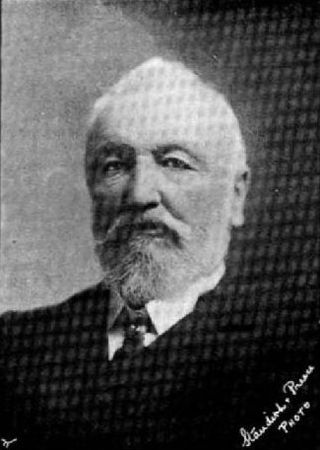
John Thomas Peacock MLC JP was a New Zealand businessman, philanthropist and politician. He came to Canterbury in 1844, several years before organised settlement started.

John Ollivier was a Member of Parliament in New Zealand, but was better known for his membership of the Canterbury Provincial Council. He was the second chairman of the Christchurch Town Council.
The 9th New Zealand Parliament was a term of the Parliament of New Zealand.
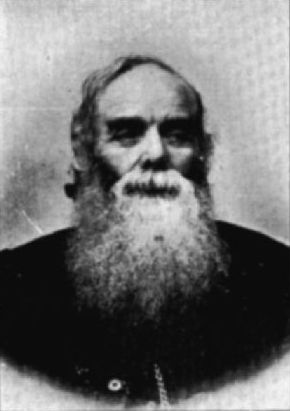
A 1889 by-election in the Lincoln electorate was held to fill a vacancy caused by the resignation of Arthur O'Callaghan from the Lincoln electorate. The by-election was won by Alfred Saunders, who beat John Ollivier.
References
- McRobie, Alan (1989). Electoral Atlas of New Zealand. Wellington: GP Books. ISBN 0-477-01384-8.
- Wilson, James Oakley (1985) [First published in 1913]. New Zealand Parliamentary Record, 1840–1984 (4th ed.). Wellington: V.R. Ward, Govt. Printer. OCLC 154283103.